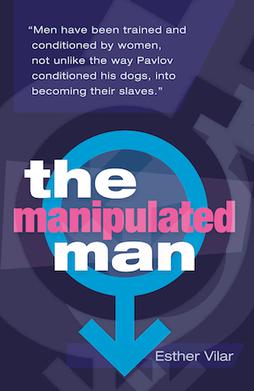
Esther Villar’s book “The Manipulated Man” has stirred up considerable controversy, suggesting that women have historically manipulated men, effectively turning them into subservient figures. Villar argues that women, while outwardly portraying themselves as oppressed, have covertly wielded power over men, particularly through courtship and marriage, leading men into lives of servitude.
Support for Villar’s assertions comes from other authors such as Chinweizu Ibekwe (“The Anatomy of Female Power“) and Will Farrel (“The Predatory Female“), who argue that societies are actually matriarchal rather than patriarchal. According to them, women have historically ruled through cunning and deception, presenting themselves as weak to gain protection and control.
Drawing parallels between dating and horse training, Ibekwe likens courtship to breaking a man’s independence and shaping him to fit a woman’s desires. Marriage, in this context, becomes a testament to the woman’s conquest, with the man relinquishing his autonomy. This dynamic is perpetuated by societal and governmental structures that reinforce the man’s submissive role.
Further support for Villar’s perspective comes from authors like Helen E. Fisher (“The Sex Contract: The Evolution of Human Behaviour“), who have delved into the history of ancient societies. Fisher suggests that marriage, often perceived as a male-dominated institution, is actually a creation of women who use sex as a tool to manipulate men into providing care for them and their offspring.
While these ideas are contentious and may not find unanimous acceptance, they offer a provocative lens through which to examine gender dynamics and power relationships. It’s worth considering these perspectives to gain a deeper understanding of the intricate interplay between men and women in society.
